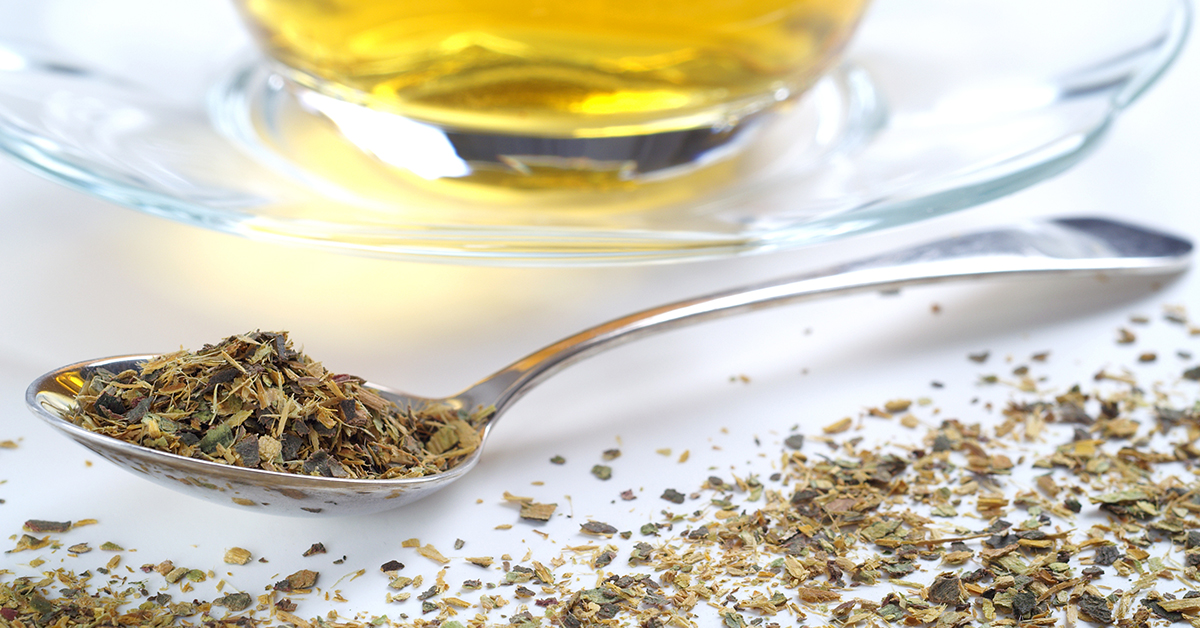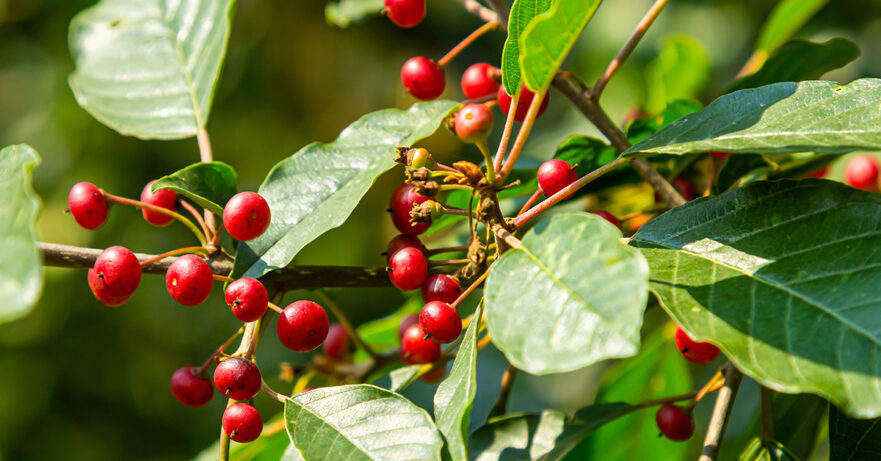In this monograph about alder buckthorn:
📖 Introduction | 🌱 Botanical Description | 📜 Traditional Uses | 🔍 Phytochemistry | ✨ Applications and Uses | 🛡️ Safety Profile
📖 Introduction
Alder buckthorn (Frangula alnus) is a deciduous shrub renowned for its laxative properties and role in traditional medicine for treating constipation and other digestive issues. Its bark, harvested and aged before use to mitigate toxicity, has been valued for both its effectiveness and its gentle action on the bowels.
| English Name | Alder Buckthorn |
| Latin Name | Frangula alnus |
| Parts Used | Bark |
| Traditional Uses | Laxative for constipation, detoxification |
| Herbal Actions | Laxative, purgative |
🌱 Botanical Description
Scientific Classification
Frangula alnus belongs to the Rhamnaceae family.
Physical Characteristics
This shrub typically grows between 3 to 6 meters tall, featuring glossy, ovate leaves and small, star-shaped greenish-white flowers. It bears red berries that turn black upon ripening.
Natural Habitat and Cultivation Details
Native to Europe, northern Africa, and western Asia, alder buckthorn thrives in wet, acidic soils in forested areas and along riverbanks. It requires a lot of light to flourish and is commonly found in deciduous woodlands and hedgerows.
📜 Traditional Uses
Traditionally, alder buckthorn bark has been used for its purgative effects to relieve constipation and cleanse the bowels. Additionally, it has been employed in treating hemorrhoids, gallstones, and liver disorders, underlining its importance in traditional digestive remedies.

🔍 Phytochemistry (Active Constituents)
Alder buckthorn contains several key compounds that contribute to its medicinal effectiveness:
- Anthraquinones: Including glucofrangulin and frangulin, which are responsible for the plant’s strong laxative effects.
- Tannins: Provide mild astringent properties that can help soothe irritated digestive tracts.
- Flavonoids: Contribute antioxidant properties that support overall health.
✨ Applications and Uses
Alder buckthorn is valued in herbal medicine for its diverse applications, particularly in supporting digestive health and managing inflammation:
- Digestive health: Alder buckthorn is primarily used in the form of syrups or teas as a natural laxative to treat constipation and ensure regular bowel movements.
- Detoxification: It aids in detoxifying the liver and intestines, promoting overall digestive health.
- Inflammatory conditions: Its bark is utilized in managing inflammatory conditions of the gastrointestinal tract due to its soothing properties.
🛡️ Safety Profile
Alder buckthorn is generally safe when used correctly and for short periods, typically not exceeding 7 to 10 days.
Its raw bark contains compounds that can be harmful, so it is aged or heat-treated to reduce these effects before medicinal use.
It should be used with caution in children, pregnant or breastfeeding women, and individuals with intestinal obstructions or abdominal pain.
Due to its potent laxative properties, overuse can lead to electrolyte imbalances, muscle weakness, and heart problems.
Always consult a healthcare provider before starting any new treatment, especially for those with existing health conditions or those taking other medications to avoid adverse effects.
